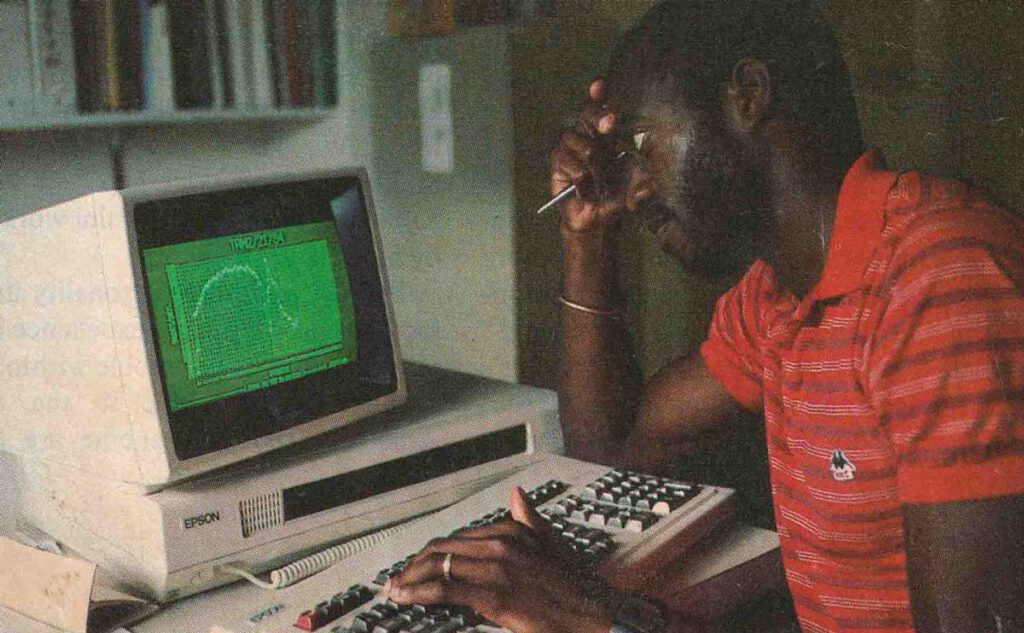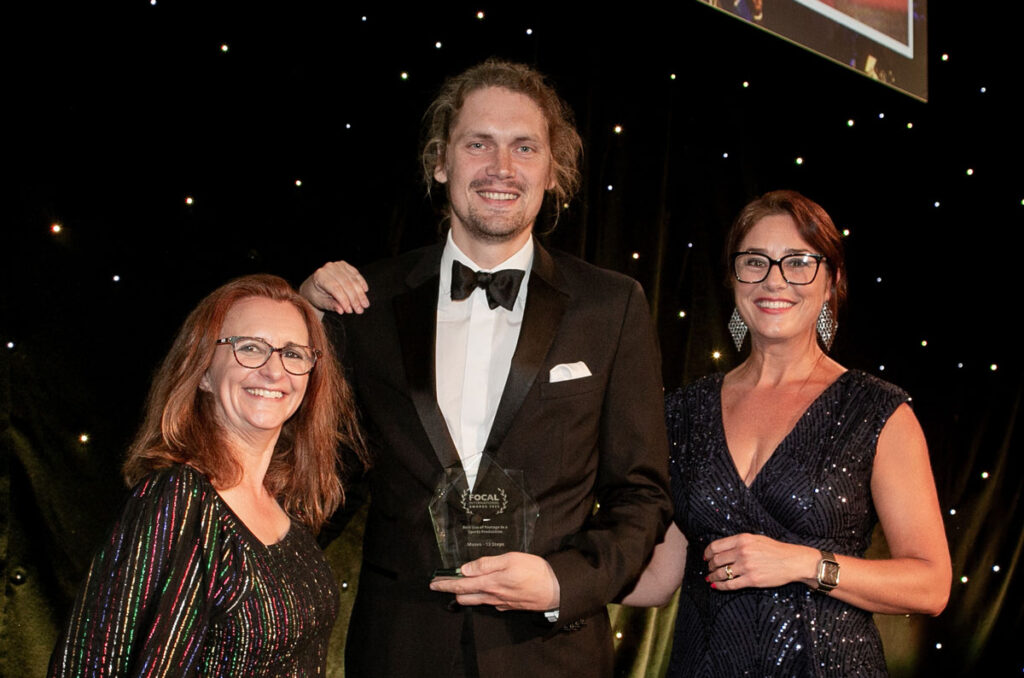
20 Jul Interview with Thorben Bockelmann – honoured with the FOCAL International Award 2025
Archive producer Thorben Bockelmann was honoured at this year’s FOCAL Awards in London with the prize for ‘Best Use of Footage in a Sports Production’ for the film ‘Moses – 13 Steps’. The documentary tells the life story of the exceptional American athlete Edwin Moses, who remained undefeated as a hurdler for almost a decade. GRAP member Thorben tells us in an interview about the extraordinary archive material he found for this film. FOCAL International is a professional association representing archives and archive producers in over 30 countries.
Thorben, congratulations on this great award! What impressed you personally about the story of Olympic champion Edwin Moses?
Edwin’s career is truly fascinating. Compared to many competitive athletes today, he came to hurdling very late in life. When he competed in his first 400-metre hurdle race, he was almost 20 and a student at Morehouse College in Atlanta. A year later, he won gold at the Olympic Games in Montreal. He revolutionised the sport, developed his own running technique and continuously refined it. He was undefeated for 9 years, 9 months and 9 days, setting the longest winning streak in the history of athletics.
BROADVIEW Pictures produced the film, and you have been working together for many years. Why did a German production company decide to tell the life story of this particular American athlete?
There are many factors at play here. One important point is certainly that BROADVIEW has already produced many excellent sports documentaries. So there is a certain amount of experience and, as a result, the athletes trust that their life stories will be told well. In this case, the contact was probably made through Dirk Nowitzki, about whom BROADVIEW produced a film in 2015. Edwin himself also celebrated some of his greatest successes in Germany, was married twice in Germany and has a son who lives here.
Can you give us some figures? How long did you work on this project, how many hours of archive material did you view, how many photos did you collect?
That’s not easy to put into figures. I flew to Edwin’s home in Atlanta in the spring of 2022, and we had the premiere in December 2024. That’s almost three years, which is a long time even compared to other projects. I can’t say exactly how much archive material I’ve looked through over the years. In any case, it was a lot of hours. From Edwin’s family history in the USA in the 1950s, with topics such as the race riots, to his current commitment to fighting doping – such an exciting life contains many topics that need to be explored and find their place in the film. That adds up to a lot of film material.
Sports rights are considered particularly complicated and expensive. How did you deal with this challenge?
Yes, sports rights are often very expensive, and the hurdles are no exception. The rights to the Olympic Games are particularly expensive to use. That’s why it’s important to estimate the licence costs realistically before production begins, so that there are no nasty surprises later on and you can keep control of the budget during editing.
Were there any unusual finds in the archives?
I was constantly surprised by the great material we found in Germany. For example, ZDF filmed a major portrait of Edwin in 1983, which included many great images. I particularly remember a scene in which Edwin rides horses on the beach with his then wife Myrella. But the race in Madrid, where Edwin’s winning streak came to an end after almost ten years, was also filmed to an impressively high standard and there was significantly more material than we had originally expected.

Is there an archive scene that means a lot to you?
There is some beautiful 35mm footage from the 1984 Olympic Games in Los Angeles. Edwin won gold back then. This footage is not normally available for licensing. But after a lot of persuasion and thanks to our contacts in the USA and the International Olympic Committee, we were granted special permission. For me, that’s definitely the visual highlight of the film.
You visited Edwin Moses in person. Can you tell us more about working with him?
Edwin was open to working closely with us from the outset. In 2022, I flew to Atlanta with screenwriter Markus Brauckmann to visit him. There, we went through his family archive together, digitised 8 mm films and photos, and even brought a whole suitcase full of film cassettes back to Germany. Among them were real treasures: family films, photos of Edwin at Morehouse College, records of his training times and much more. Such a personal archive is always a stroke of luck and a great asset for any documentary because it reveals the person behind the public image.
That sounds like a great collaboration and is certainly one of the reasons why the archive is so special in the film. What does winning the FOCAL Award mean to you?
I am delighted that the jury chose the film. The competition was strong and any of the other films would have been equally deserving of the award. This prize is particularly valuable to me because it raises the profile of archival work. This part of production often remains in the background, even though it is crucial to how powerful a film is. I am proud that the FOCAL Award recognises this. For me, it is not just an award, but also a very personal conclusion to a long and intensive project. An incredible amount of heart and soul went into the film, and it is wonderful when that is recognised.

Where can you watch the film ‘Moses – 13 Steps’ at the moment?
We had the official cinema release in December 2024. Further distribution is currently being planned. Although I can’t give any exact details at the moment, I can reveal that it will be broadcast on German television in the foreseeable future.


